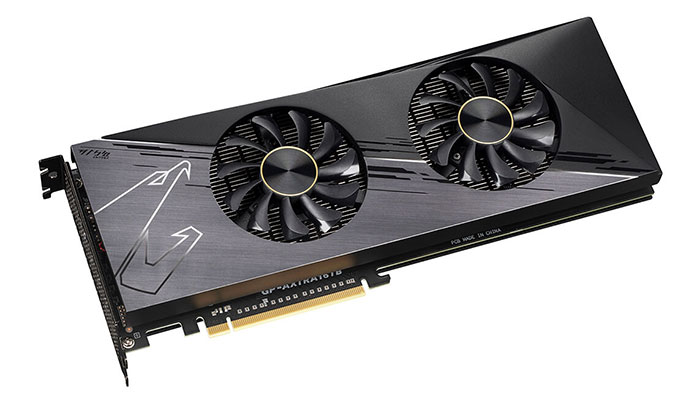Gigabyte has announced that its Aorus Xtreme Gen4 AIC SSD has been released. The new add-in-card (AIC) doesn't have an official product page at the time of writing, but the Gigabyte press release is quite informative and certainly provides enough info for you to know if this product will appeal or potentially meet your needs.

As an 'Xtreme' product, the headlining specs live up to expectations. Gigabyte's Aorus Xtreme Gen4 AIC SSD features eight 4TB 2nd generation PCIe 4.0 NVMe M.2 SSDs with Phison's latest PS5018-E18 controller technology. Users can access the storage via various RAID configurations and thus can benefit from up to 32TB of storage, and up to 28 GB/s transfer speeds. The transfer speeds, according to Gigabyte, make this product the "highest performance storage device among all consumer SSDs in the market."
Concentrating all this fast storage on a single AIC might generate a lot of heat, but Gigabyte seems to have planned for this eventuality with its design. From the image of the card, you can see it is quite lengthy, and sports twin fans. Under the shroud it has fitted a large aluminium finned heatsink, as well as M.2 baseplate for passive cooling. Moreover, 10 temperature sensors embedded on the card help you monitor and keep temperatures in check.

Gigabyte supplies its custom SSD Tool Box software to provide real-time status and temperature monitoring of SSDs. Within this software, you will be able to adjust the fan speeds, as well as do your storage configuration tasks like setting up the card in various RAID modes with a single click.
With no official product page available as yet, you might not be surprised that Gigabyte hasn't shared availability and pricing for the Aorus Xtreme Gen4 AIC SSD, as described above. A single one of its constituent drives usually costs £600+, multiply that by eight and add something for the PCIe card, results in a base price of about £5,000.













